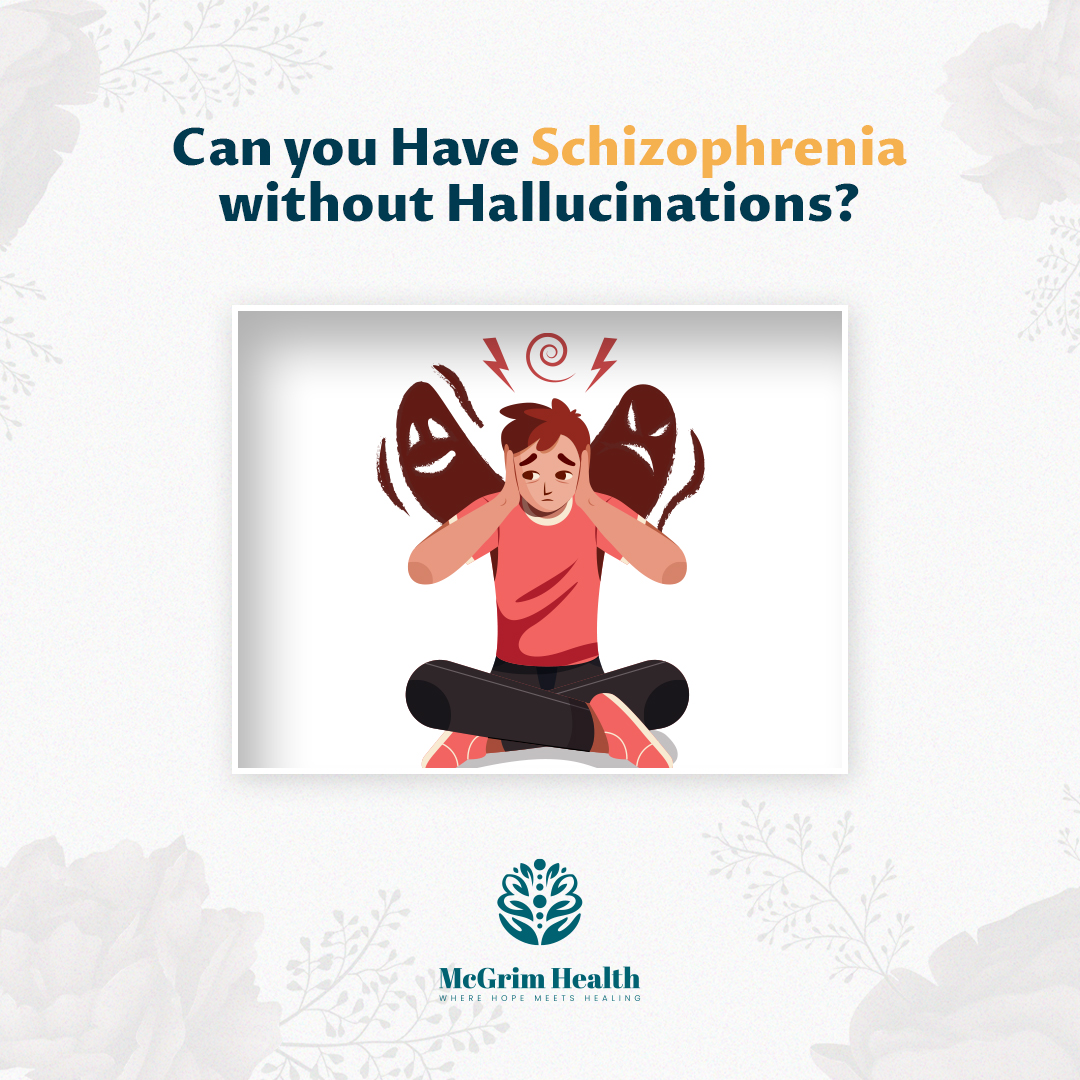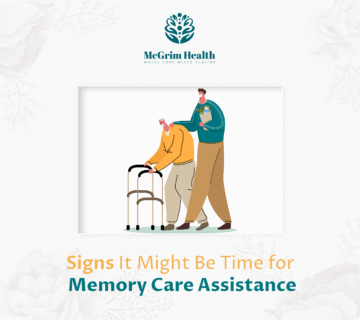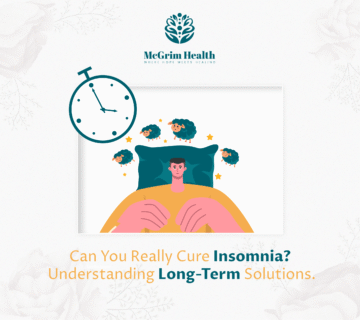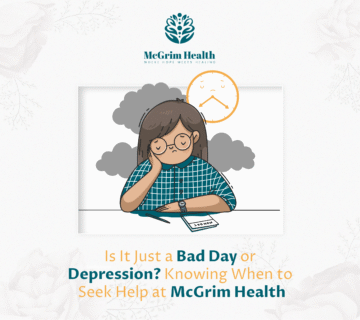Schizophrenia, a long-lasting brain condition, impacts nearly one in a hundred Americans.
Symptoms can include delusions, hallucinations, scrambled speech, and low drive. This is when it’s active.
But, a thought has remained in several brains, “Can you have schizophrenia without hallucinations?”
Living with schizophrenia? Recovery is possible. McGrim Health provides excellent treatment for mental health issues. Our expert team offers crucial support, guiding patients to stability and well-being. Don’t face symptoms alone. Reach out today.
Next, we’ll explore this query. It will shed light on the understanding of schizophrenia and its many symptoms.
Understand Schizophrenia
Schizophrenia shows in various ways, making it hard to categorize. It’s more than just hallucinations. Patients often face delusions, messy thoughts, and cognitive issues.
Hallucinations are common but not always present. Some people have altered perceptions and fragmented thinking.
Individuals with schizophrenia do not experience hallucinations. They don’t perceive or listen to things that aren’t present.
To fully understand the condition, one must look beyond its most famous symptom. This approach reveals the disorder’s complex nature.
Signs of Schizophrenia
The American Psychiatry Association notes all of the following are symptoms of schizophrenia, except for some conditions not classified as such. Here are several typical signs linked to the condition:
- Positive Symptoms
Positive symptoms are those that add to a person’s experience. These can include:
- Hallucinations: Our minds can create vivid images that trick our senses. These illusions seem real but are mental creations. They can affect any sense, but often, they appear as imaginary sounds, like voices that don’t exist.
- Delusions: Delusions can be tough to shake. They often ignore the factual proof. For instance, someone might believe they’re always being watched. This belief sticks, even when evidence shows otherwise. Such, fact-free convictions can warp a person’s view of reality.
- Disorganized Speech: This includes unclear thought or speech, making it hard for others to understand. Disorganized speech examples include jumping between topics without a logical link.
- Negative Symptoms
Negative symptoms reflect a decrease in normal functions. These can include:
- Lack of motivation
- Reduced emotional expression
- Social withdrawal
- Difficulty in sustaining attention
- Cognitive Symptoms
People with cognitive symptoms face memory lapses and confused thinking. Their attention drifts, and they forget information.
Making decisions becomes hard. Simple tasks turn into challenges. They struggle to meet life’s demands. This leads to unfinished tasks and neglected responsibilities.
Do Schizophrenics Know they are Hallucinating?
Persons with schizophrenia may fail to acknowledge their hallucinations. For instance, hearing or seeing things that don’t exist can seem genuinely real.
Yet, some people, notably those receiving help, might sometimes spot when their views are twisted.
Understanding levels differ from person to person, and with their stage of help. Quick action and support can improve schizophrenia awareness.
Can You Have Schizophrenia Without Hallucinations?
Yes, you can exist with schizophrenia and not face hallucinations. It is not limited to hallucinations. Many people with it do not experience hallucinations.
Instead, they face various other symptoms. These symptoms, though less dramatic, are key to understanding and diagnosing the disorder.
For example, someone might have disorganized speech or delusions. But they never hear voices or see things that aren’t there.
Schizophrenia is unique. It shows a range of personal realities and challenges.
What Do Schizophrenic Hallucinations Look Like?
Schizophrenic hallucinations vary by person but are mind-created sensory experiences. They can affect any sense:
- Auditory: People hear non-existent voices or sounds, often critical or commanding.
- Visual: Individuals see things like people or objects that aren’t there, sometimes vividly or terrifyingly.
- Tactile: They might feel sensations, like insects crawling on them, with no physical cause.
- Olfactory: Some smell odors that don’t exist, often unpleasant, like rotting food or smoke.
- Gustatory: Others might taste strange, unpleasant flavors that aren’t present.
Hallucinations differ in duration and intensity. They are key symptoms of schizophrenia, significantly impacting daily life.
What about Schizophrenia Illusions?
Schizophrenia creates illusions, but they’re not the same as hallucinations. These illusions consist of getting real sensory details wrong.
For example, a shadow might be mistaken for a person. Even so, this isn’t an illusion. This difference is key to understanding those with this disorder.
Other Mental Health Conditions
Non-psychotic mental illnesses can mimic schizophrenia symptoms. But they don’t produce a diagnosis of it.
Conditions like major depression and anxiety, for instance, can also mimic schizophrenia. However, they lack psychosis.
Some people with schizophrenia skip medication. For many, treatment is crucial. Others might find relief through therapy, lifestyle changes, and support.
Yet, this method requires careful monitoring and professional guidance.
Common Myths about Schizophrenia
Schizophrenia is often misunderstood due to myths. These lead to stigma. Here are some common misconceptions:
- All schizophrenics are violent.
This is false. Most people with schizophrenia are not violent. Often, they are victims, not attackers.
- Hallucinations are necessary for diagnosis.
This is not true. A diagnosis can happen without hallucinations.
- People with schizophrenia can’t live normal lives.
Many do. They manage their symptoms and lead fulfilling lives.
Can Blind People Be Schizophrenic?
Yes, schizophrenia can affect blind people too. This condition alters the way one thinks and behaves. It can equally hit those with or without sight. But, the presentation might vary depending on the timeline of blindness.
Studies suggest those born blind are less likely to suffer visual hallucinations. Still, hearing weird sounds, false beliefs, and other symptoms can occur.
On the other side, people losing sight later might witness imaginary visions. As this disorder messes with the brain, blindness does not act as a shield.
Living with Schizophrenia without Hallucinations
Schizophrenia is tough. But, with the right help, a good life is possible. A lot of people do not experience hallucinations but still confront obstacles. Early treatment is vital.
Patients should stick to their treatment plans. It means going to therapy and working with doctors to manage symptoms.
With the right care, a healthier mindset is achievable. Trust McGrim to lead you to healing and renewed hope.
Conclusion
To sum up, “Can You Have Schizophrenia without Hallucinations?” It’s complex and varies by person. Many have hallucinations, but not everyone.
Some might have delusions or disorganized thoughts. Others could show “negative symptoms,” like less emotion or social withdrawal.
Schizophrenia is hard to categorize. Its varied symptoms mean doctors must tailor diagnosis and treatment.
Understanding this complexity is key to supporting those affected. Each experience is unique, and defined by specific symptoms.
FAQs
How to tell someone they have schizophrenia?
Advising someone they may have schizophrenia necessitates sensitivity. First, kindly communicate your apprehensions about their symptoms. Afterward, motivate them to find specialist support.
What is the length of episodes in schizophrenia?
Schizophrenia sights can remain for days, weeks, or months. Not every sufferer of the condition will undergo it.
Does schizophrenia cause loss of appetite?
Schizophrenia can indeed affect appetite. Symptoms such as depression, anxiety, or medication side effects may be the cause. This can ultimately lead to significant weight loss and a lack of essential nutrients.
Why do schizophrenics sleep so much?
People with schizophrenia might often sleep too much. It could be the side effects of their medication, especially antipsychotics. Or, it could be the disorder’s signs, like feeling low or tired. Changes in sleep habits also happen a lot in schizophrenia.
Do schizophrenics smell?
Schizophrenia can sometimes manifest in unusual ways. For example, certain folks may sense smells that aren’t there. Remember, this is merely a possible symptom, not a standard characteristic of everyone living with this disorder.





No comment